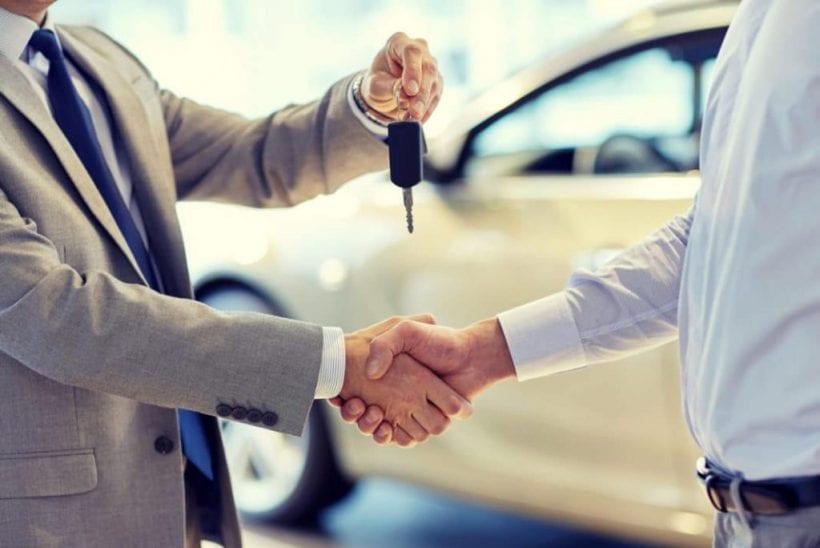In today’s world, it is crucial to take steps to protect yourself, no matter what you are doing. Many people believe that crime rates are increasing worldwide, which is especially true in the United States. And with the ability to connect with strangers quickly through the internet, those looking to conduct business need to be especially careful. So true is the case of selling your vehicle to a private buyer.
Many people choose to trade their car into a dealership when they look to purchase a new or newer car. In reality, this can be the easiest choice. Unfortunately, this can also be the most expensive choice. According to an article from SuperMoney, the typical car owner can lose over $2,000 on a trade-in to a car dealership. This should come as no surprise, though, as dealerships need to buy low to mark up the price to the next buyer.
If you are looking to keep as much of that money in your pocket as possible, then a private sale is probably the best for you. Should you decide to pursue a private sale to sell your car, then be sure to take the appropriate steps to protect yourself and stay safe in the deal.
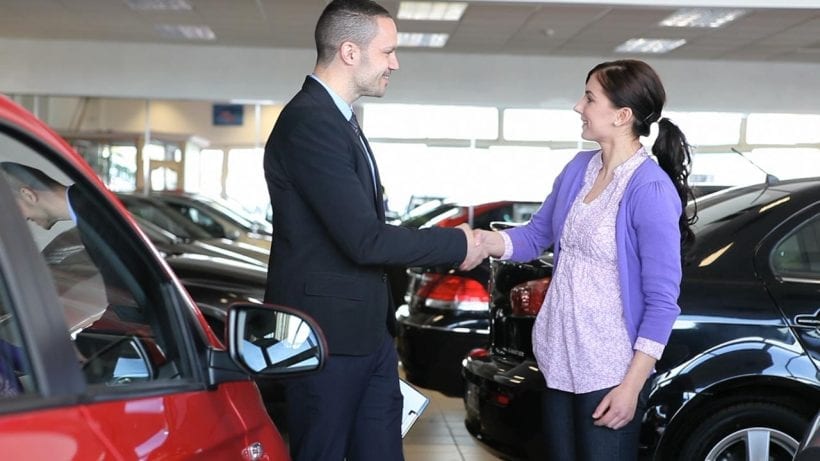
9 Tips to Safely Sell your Vehicle
1. Keep Friends and Family Informed
Before you go and meet with a potential buyer, and especially before you give out personal information or allow them into your car with you, make sure that a trusted friend or relative is aware of what you are doing. Even better, have someone else with you who can note the other person, including their description and license plate information, especially if you join the potential buyer on the vehicle’s test drive.
2. Sell Safely
You might be wondering how to negotiate the deal or make the logistical arrangements to show your car without giving out personal information. You don’t have to give out any information this early in the process. Many newspapers and online auto trader organizations provided encrypted email options so that you don’t have to share your information. In many cases, you don’t even need to provide a phone number. You can conduct all initial exchanges of information through the advertisement service. And no matter what you do, avoid getting too personal with prospective buyers. This is not the time or place to share information regarding where you live, personal interests, or your family members.
Once the purchase gets serious, be sure to block out personal information that might be on any vehicle records. Be sure to block out names, addresses, phone numbers, credit card information, etc. If you purchased the car from a dealership, make sure that you do a thorough check of the paperwork that might still be in the vehicle’s glove compartment. In many cases, buyers keep these items in the car and tend to forget that they are there.
When personal information gets into the wrong hands, it is the perfect set-up for identity theft.
3. Avoid Stranger Danger when Selling your Vehicle
Many police departments across the country within the United States provide areas within their parking lots where buyers and sellers can meet to conduct lawful business. Surveillance cameras protect these areas, and there is nice peace of mind knowing that law enforcement officers are nearby in the event you need help.
Should you not wish to conduct business at a police station, then choose another public place where there are many people around. And be sure to have that friend or family member with you. By meeting in a public place, you don’t have to provide any address information, and you don’t need to give much more than your first name until the buyer proves to be serious. Know these things before selling a car.
4. Be a Reliable and Trustworthy Seller
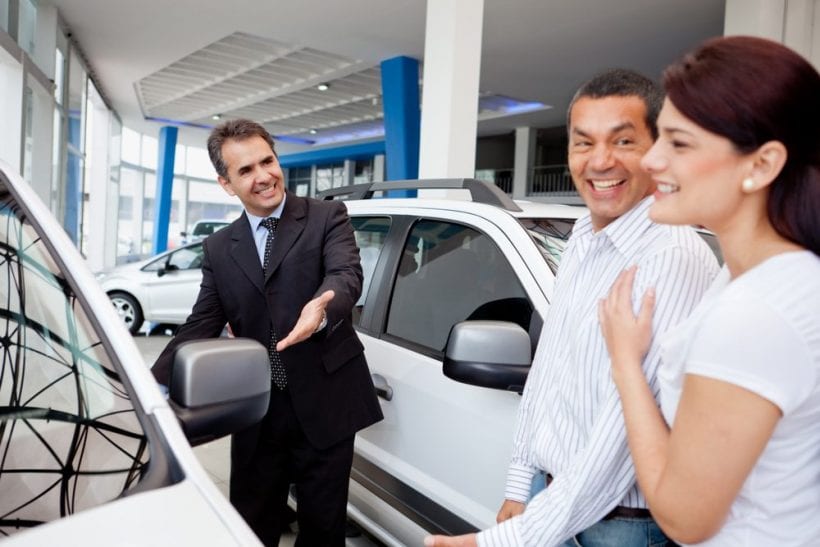
Nobody likes to be had. This means that just like you want to purchase from a safe and reliable buyer, they want to buy from a safe and reliable seller. This means that you should be fully transparent on the car’s history, including mileage, number of owners, accidents, etc. Be upfront in any advertisements about your car, and provide as much vehicle information as possible so that you can avoid people who aren’t really serious.
When you find a buyer and are looking to move forward with the transaction, make sure you understand your responsibilities with filing any title transfer paperwork or notifying any tax assessor’s office of the purchase.
5. Screen Potential Buyers thoroughly
Make sure you have a telephone conversation with the prospective buyer before you agree to meet them. Ask the caller about their needs, and encourage them to ask questions so that you don’t meet someone who is just “kicking tires.” A thorough series of questions and answers can help you gauge if they are a potentially serious buyer.
Be especially aware of people who offer to purchase your car without seeing it first. Sometime this can be a money laundering scheme or an initial attempt at identity theft. Make sure you also tell any potential buyer that you will need to see their driver’s license (not a copy) at the beginning of any meeting where they wish to see your vehicle.
6. Know how to Accept a Safe and Legitimate payment
This is one of the key reasons sellers choose to trade their vehicle at the dealership rather than to sell to a private party. The best way to avoid a scam is to follow the money. Never accept payment online and do not accept an online check or personal check that asks you to ship the car or deliver it somewhere.
Require your buyer to pay cash. If they prefer to pay with a cashier’s check, then have them meet you at the bank. Do not hand over any keys or paperwork until the bank teller confirms the check’s legitimacy and finalizes the payment.
7. Don’t Waste Time with Buyers who are Not Serious
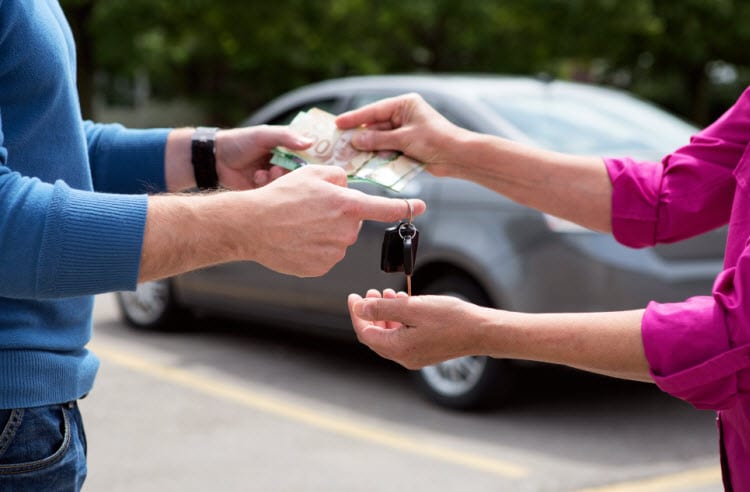
As we have mentioned, you must be transparent and thorough in any advertisements that you place about your car. The more vehicle information that you can provide upfront, the less likely you will be scheduling a bunch of non-productive meetings and test drives for the car you are trying to sell.
A great way to vet a potential buyer is to have your own list of questions that you would ask when buying a car. Take the time to answer those questions about your vehicle, and be ready with that information during the initial phone call with the prospective buyer.
8. Avoid Claims of Fraud Tied to Vehicle Sale
The more transparent and truthful you are, the less likely that you will be involved in a fraudulent claim after the purchase. Be sure to accompany the vehicle’s buyer to the Department of Motor Vehicles (DMS) office and be diligent and aware during the transaction. Make sure all paperwork is completed correctly, and then promptly cancel the insurance on the vehicle after notifying your insurance company of the transaction.
9. Keep a Paper Trail
Make sure you document the sales process from start to finish. Document phone calls, including the dates and times that they took place. Take the time to thoroughly complete all paperwork, including a Bill of Sale (you can download a template from the internet). Research and unique requirements for your state and be prepared in advance with anything that you will need, including the title, any lien releases, etc. The more thorough you are in your paperwork, the less likely you will be held liable for anything, and the less likely you will be involved in a fraudulent transaction.
Selling your Car in a Private Sale can be Advantageous
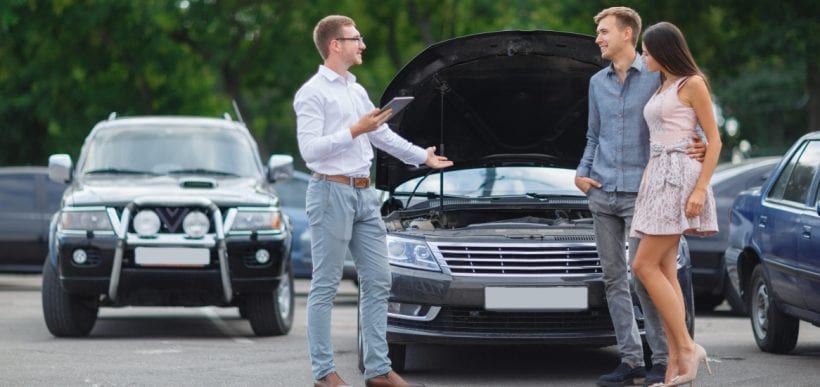
There are various benefits to selling your car to a private party, with the amount in your pocket as the biggest. Not only will you make more money, but the buyer will save more money too, and that can be a win-win. However, selling a car privately is not for everyone. CarBrain offers a great solution for sellers who want to experience the ease of a private sale without considering all of the risks involved in a private transaction.
References:
https://ehlinelaw.com/practice/car-accident/traffic-accident-faq/insurance-law/diminished-value

